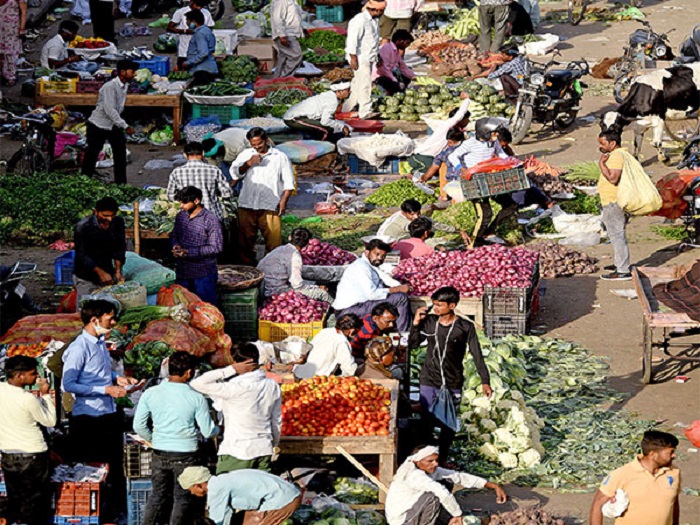
Islamabad : The Consumer Price Index (CPI)-based inflation raced to 35.4 per cent in March, the highest annual rise in prices on record since 1965, driven mainly by skyrocketing costs of food, electricity, beverage, and transport, according to official data, reported by Pak-based publication Business Recorder.
Pakistan's year-on-year inflation hit 35.37 per cent in March -- the highest in nearly five decades -- as the government scrambled to meet International Monetary Fund (IMF) conditions to unlock a desperately needed bailout. The March inflation number was the highest annual rate since available data, i.e. July 1965, according to the research firm Arif Habib Ltd., and is expected to rise in the coming months, reported Dawn.
A spokesperson for the Pakistan Bureau of Statistics confirmed that "this is the highest inflation ever recorded in the data we have."
Monthly inflation -- measured by a basket of products and services called the CPI -- stayed above 20 per cent for eight months from June to January. It then hit 31.6 per cent in February and has now crossed 35 per cent. The reading was 12.7 per cent in March last year, reported Business Recorder.
On a month-on-month basis, it increased to 3.7 per cent in March 2023 as compared to an increase of 4.3 per cent in the previous month and an increase of 0.8 per cent in March 2022.
CPI inflation Urban increased to 33 per cent on year-on-year basis in March 2023 as compared to an increase of 28.8 per cent in the previous month and 11.9 per cent in March 2022.
CPI inflation in Rural, increased to 38.9 per cent on year-on-year basis in March 2023 as compared to an increase of 35.6 per cent in the previous month and 13.9 per cent in March 2022, reported Business Recorder.
Poor citizens are already feeling the brunt of such high inflation, which has become unrelenting on the back of a messy cocktail of factors like political instability, years of financial mismanagement, the rupee's depreciation, and as the government scrambled to meet IMF conditions to unlock a desperately needed bailout.
The goods and services in the CPI basket are divided into 12 major components with different weights. Of them, costs in three categories -- food and non-alcoholic beverages, transport, and recreation and culture -- jumped by around half when compared to March last year, reported Dawn.
The index for the "alcoholic beverages and tobacco" category saw the highest annual jump, at 140 per cent, though its weight in the CPI is 1per cent compared to food's 35 per cent.
In the food group, the items whose prices increased the most in March compared to last year were onions (257.6 per cent), tea (105.19 per cent), wheat (94 per cent), eggs (83.6 per cent), rice (82.4 per cent), wheat flour (70 per cent), gram whole (65 per cent), pulse moong (58.3 per cent), besan (56 per cent), wheat products (54 per cent), pulse gram (53.8 per cent), pulse mash (53.5 per cent), cooking oil (53.5 per cent), fresh fruits (51.3 per cent), dry fruits (48 per cent), etc.
In the non-food category, the items whose prices saw the highest increase were textbooks (74 per cent), motor fuel (71.6 per cent), stationery (67 per cent), gas charges (62.8 per cent), motor vehicles (45.5 per cent), household equipment (42 per cent), and others, reported Dawn.
The country needs billions of dollars of financing to service existing debt, while foreign exchange reserves have dwindled and the rupee is in freefall. Poor Pakistanis are feeling the brunt of the economic turmoil, and at least 20 people have been killed since the start of the Muslim fasting month of Ramzan in crowd crushes at food distribution centres.
"The way inflation is rising, I believe a famine-like situation has been simmering," said Shahida Wizarat, a Karachi-based analyst. At least 12 people were killed Friday in a crowd crush in Pakistan's southern city of Karachi at a factory distributing RamZan alms.
The South Asian nation -- home to more than 220 million -- is deep in debt and must enact tough tax reforms and push up utility prices if it hopes to unlock another tranche of a USD 6.5 billion IMF bailout and avoid defaulting.
Inflation is expected to stay at "elevated" levels, the finance ministry said, "owing to market frictions caused by relative demand and supply gap of essential items, exchange rate depreciation and recent upward adjustment of administered prices of petrol and diesel."